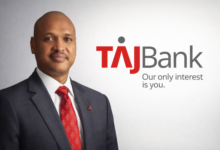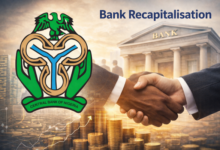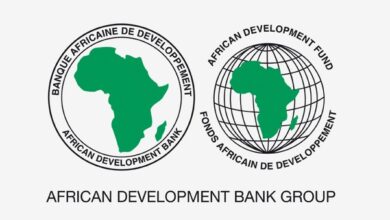Nigeria’s Trillion Dollar GDP Dream Faces Major Test Without Policy Consistency, NGX Chairman Warns

As Nigeria charts a bold path toward becoming a $1 trillion economy by 2030, Dr. Umaru Kwairanga, Chairman of the Nigerian Exchange Group (NGX), has raised a red flag that could derail the ambitious journey: policy instability and currency depreciation.
In a wide-ranging conversation with the News Agency of Nigeria (NAN) in Lagos, Dr. Kwairanga warned that despite the Tinubu administration’s reformist zeal, Nigeria’s trillion-dollar aspiration remains vulnerable to inconsistent policy signals, macroeconomic volatility, and weak institutional coordination.
“We’ve been halfway to a trillion-dollar economy before, but currency devaluation alone has slashed our GDP in dollar terms by more than 50%. If we fail to ensure policy stability, we risk missing this historic opportunity again,” he said.

The Stakes: Why Policy Matters More Than Ever
Nigeria’s GDP in nominal terms may look impressive in naira, but in dollar terms — the global benchmark — recent years have seen a dramatic decline. The Naira’s volatility, coupled with a stop-start policy environment, has undermined the country’s global competitiveness and investor confidence.
Kwairanga warned that frequent policy reversals and bureaucratic inefficiencies continue to complicate long-term economic planning and scare off both foreign and domestic capital.
“Policy somersaults create uncertainty. Investors want predictability, not surprises,” he noted. “President Tinubu has taken commendable steps — but we need an institutional structure outside of civil service inertia to drive this $1 trillion target.”
A Capital Market-Driven Transformation
Dr. Kwairanga positioned the Nigerian capital market as central to the trillion-dollar blueprint, noting that no modern economy has sustainably scaled without leveraging an efficient, inclusive, and innovation-driven capital market.
From retail access expansion to diversified capital formation, he listed NGX-led initiatives designed to stimulate productive investments across key sectors including:
- Infrastructure finance through equity and sukuk offerings
- Tech-sector scale-ups via private equity and venture capital
- Diaspora engagement and roadshows to attract global capital
“The capital market is not just a mirror of economic activity — it is the engine that can power economic transformation,” he emphasized.
Recent data supports this thesis. According to NGX figures:
- Foreign Portfolio Investment (FPI) inflows surged by 126.8%, rising from ₦174.82 billion in 2023 to ₦396.41 billion in 2024.
- Foreign Direct Investment (FDI) also increased from $1.87 billion to $2.6 billion within the same period — bolstered by President Tinubu’s international investor engagements, in which NGX has played a visible role.
From New York to the NASDAQ: Taking the Nigerian Story Global
Kwairanga recounted recent strategic engagements, including meetings with international investors at NASDAQ in New York alongside President Tinubu, and similar sessions with the Central Bank Governor and Nigerian diaspora in the U.S.
“Our message has been consistent: Nigeria is investible again — but only if we maintain credible macroeconomic frameworks and deepen capital market reforms.”
Unlocking GDP Through the Capital Market: A Tactical Playbook
Dr. Kwairanga outlined how NGX and other capital market institutions are directly contributing to GDP expansion:
- Mobilising long-term capital for infrastructure in power, roads, telecoms, and transport.
- Scaling innovation through funding of high-growth tech enterprises.
- Driving productivity by enabling businesses to access cheaper capital for expansion.
- Boosting savings through investor participation across retail and institutional segments.
He cited the Federal Government’s ₦650 billion seven-year Sukuk issuance for road infrastructure as a prime example of how the capital market is unlocking physical capital that fuels growth.
“Every time we raise capital for roads, bridges, or telcos, we’re also raising Nigeria’s GDP,” Kwairanga said.
The Reform Tailwind: A Window of Opportunity
Kwairanga acknowledged President Tinubu’s economic reforms as the most significant in over two decades — notably:
- Fuel subsidy removal, freeing up over $10 billion annually
- Exchange rate unification, restoring transparency in the FX market
- Gazetting of AfCFTA tariff schedules, boosting Nigeria’s regional trade participation
- The passage of the Investments and Securities Act (ISA) 2025, strengthening investor protection and legal confidence in capital markets
“These are powerful structural changes. But for the $1 trillion economy to materialise, we need to build on them with consistency and coordination,” he noted.
BRANDECONOMY INSIGHT: A Narrow Window, A Bold Goal
Nigeria’s economic ambition is plausible — but not automatic. As Kwairanga rightly argues, hitting the $1 trillion GDP mark by 2030 demands more than bold announcements; it demands sustained policy coherence, currency stabilization, and capital market empowerment.
“We are at a tipping point,” he concluded. “Get the policy mix right, and Nigeria could leap into a new economic orbit. Get it wrong, and we risk another lost decade.”












